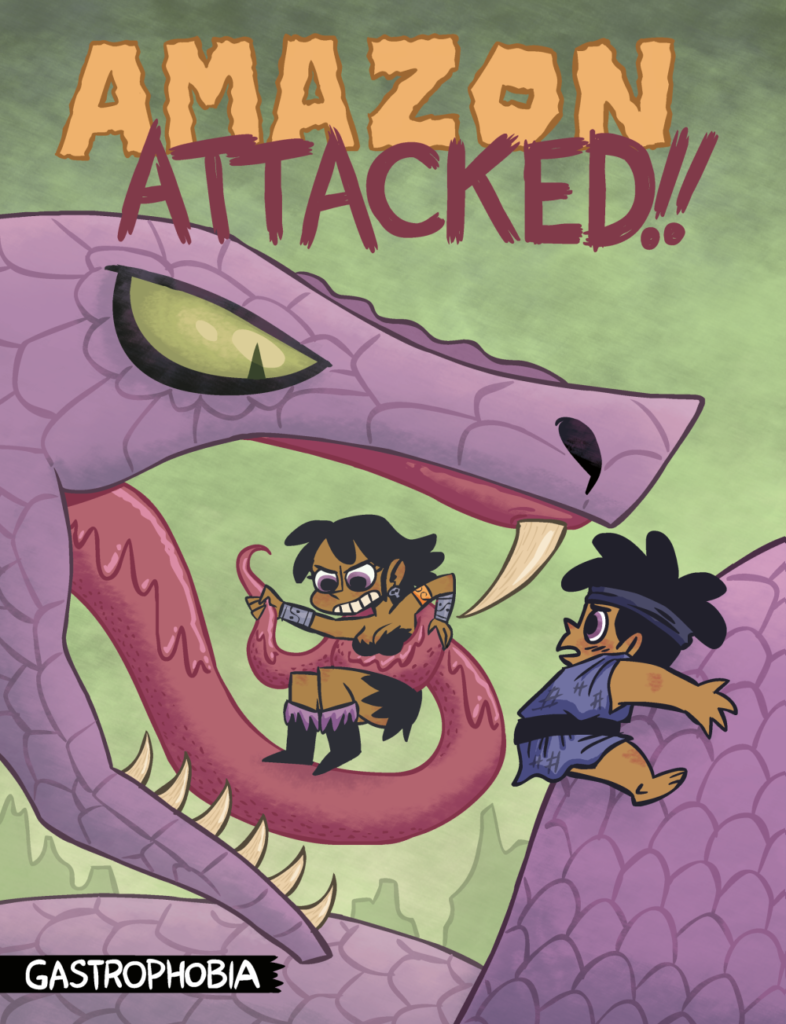-
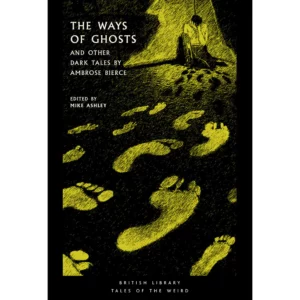
The Ways of Ghosts: And Other Dark Tales by Ambrose Bierce (Tales of the Weird)
$16.99 Add to cart -
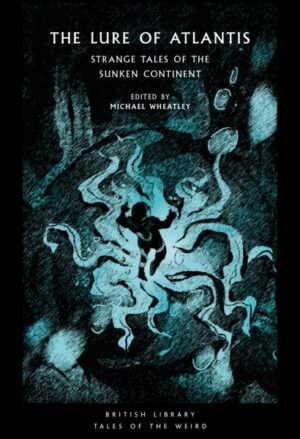
The Lure of Atlantis: Strange Tales of the Sunken Continent (Tales of the Weird)
$16.99 Add to cart -
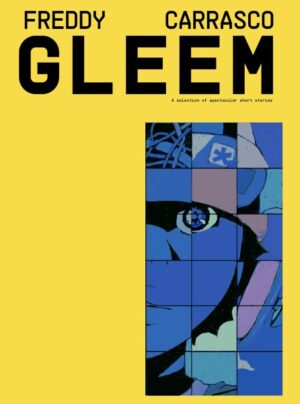
Gleem
$22.95 Add to cart -
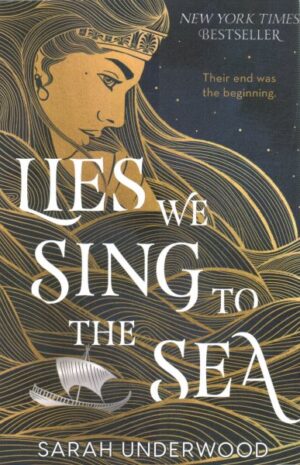
Lies We Sing To The Sea
$15.99 Add to cart -
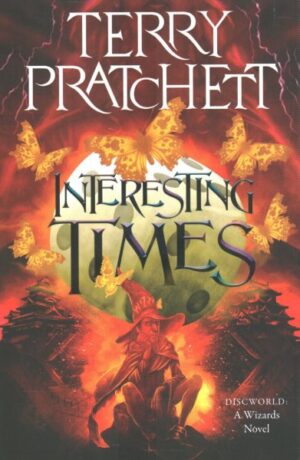
Interesting Times: A Discworld Novel (Wizards #5)
$17.99 Add to cart -
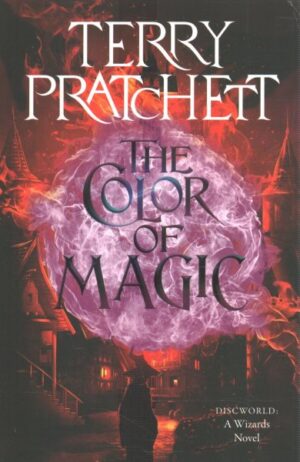
The Color of Magic: A Discworld Novel (Wizards #1)
$17.99 Add to cart -
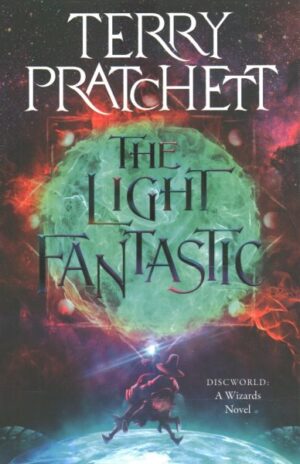
The Light Fantastic: A Discworld Novel (Wizards #2)
$17.99 Add to cart -

Monsters: A Fans Delima
$17.00 Add to cart -
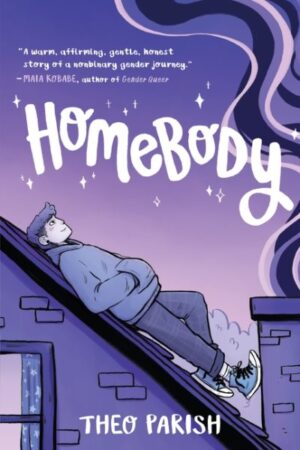
Homebody
$18.99 Add to cart -
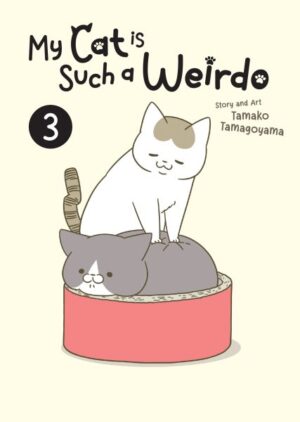
My Cat Is Such A Weirdo vol. 3
$15.99 Add to cart -
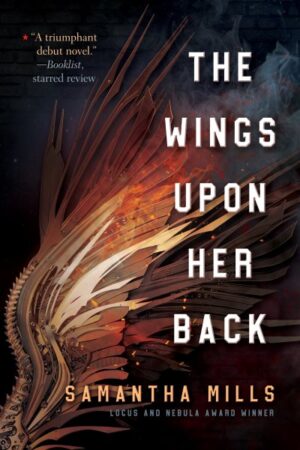
The Wings Upon Her Back
$18.95 Add to cart -
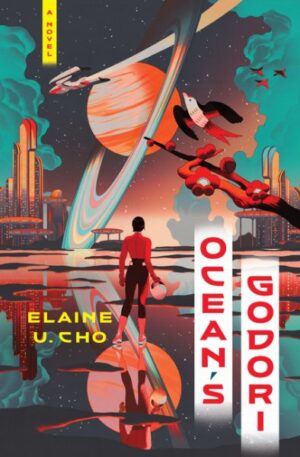
Ocean’s Godori
$28.00 Add to cart -
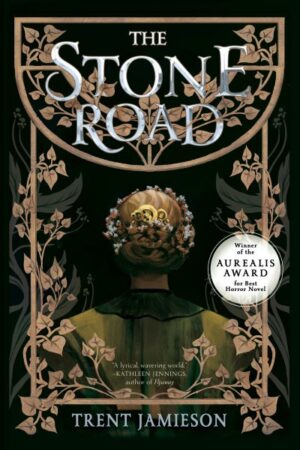
The Stone Road
$17.95 Add to cart -

So Long Sad Love
$24.95 Add to cart -
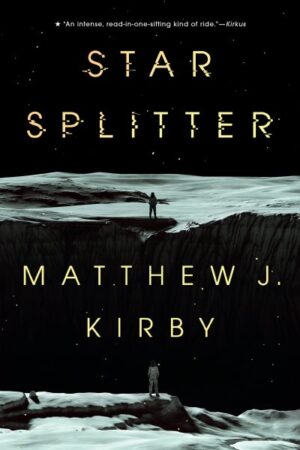
Star Splitter
$12.99 Add to cart -
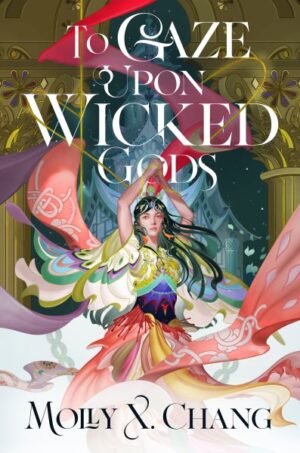
To Gaze Upon WIcked Gods
$30.00 Add to cart -
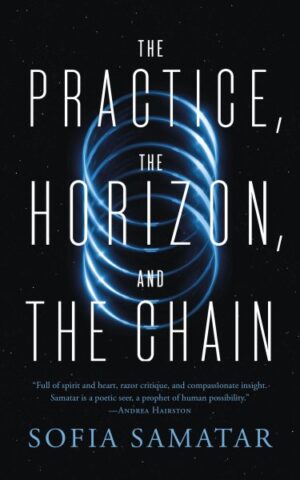
The Practice, the Horizon, and the Chain
$18.99 Add to cart -
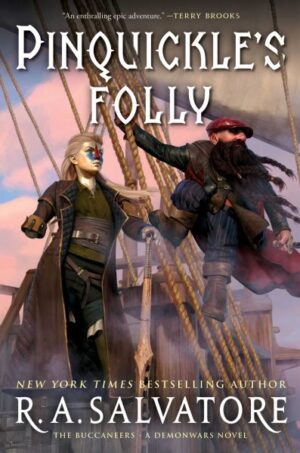
Pinquickle’s Folly
$29.99 Add to cart -
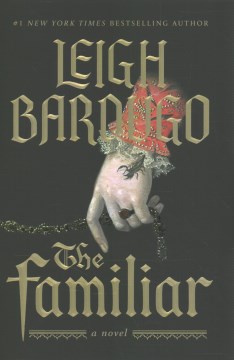
The Familiar
$29.99 Add to cart -
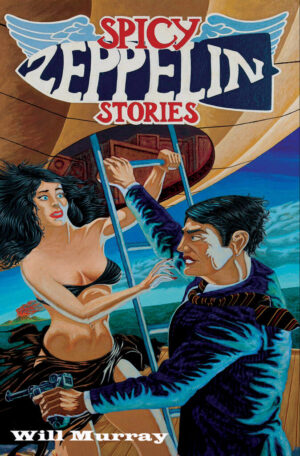
Spicy Zeppelin Stories
$19.95 Add to cart
Citadel by C.M. Alongi
This book was recently listed as a finalist for the Minnesota Book Award in Genre Fiction, to be given to a Minnesota author on May 7th by the Friends of the Saint Paul Library. Two other books previously reviewed here are also nominated: Liberty’s Daughter by Naomi Kritzer’s and Ink Blood Sister Scribe by Emma Torzs. Congratulations!
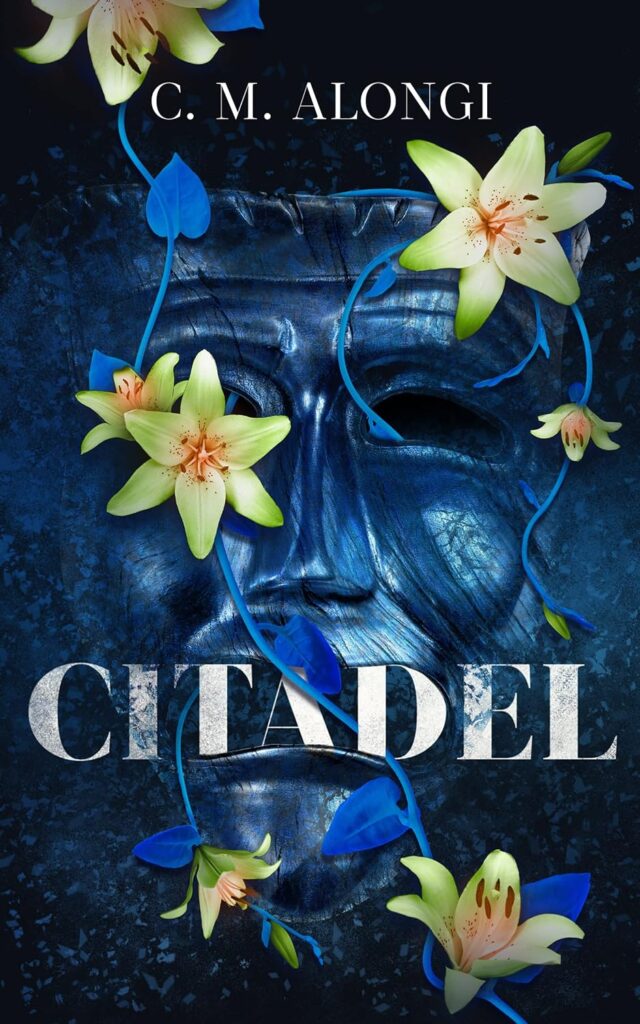
Citadel is the “first full-length novel” written by C. M. Alongi, whose publisher apparently doesn’t count her earlier fantasy novella series. (The publisher also doesn’t mention her very popular YouTube channel.) The book reminds me of some of Sharon Shinn’s works, where a story that seems initially to be fantasy turns into science fiction as the plot is revealed.
The protagonist is a young woman named Olivia who lives in an isolated city called Citadel, walled against extreme tidal flooding and incursions by a hostile species known as “demons.” She is somewhere around nineteen years old, but seems older since she is mourning her fiancee, killed a year ago in a battle against the demons. She has not been diagnosed with autism, since the diagnosis is unknown in Citadel, but she has many signs of it, along with a discomfort with communicating verbally. She is never without her notebook in which she answers conversation, makes copious notes on natural history, and writes eloquent letters to her dead fiancee.
However, Citadel is becoming a dangerous place to live, particularly for anyone who is in any way different. People who disagree with the current government, which has established a religion around exterminating the demons, are being put to death. It is a very bad time for a young woman, already harassed for her differences, to learn that said demons are sentient. Leaving the city and living in the hostile environment around it might actually be less dangerous for Olivia than remaining at home.
This is a fine SF read, with interesting world-building and a modern female protagonist whose confidence is unburdened by her repressive upbringing and is well up to the adventures ahead of her.
Two Books by T. Kingfisher
Ursula Vernon (aka T. Kingfisher) will soon be returning to Minneapolis to be the Author Guest of Honor at Minicon, and we’ve made an effort to acquire some of her backlist. I have for some time been hearing great things about Swordheart and the Paladin series, which begins with Paladin’s Grace. Initially, I had to borrow them from a friend, who obviously treasures them. But now we have some copies in stock!
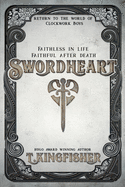
Swordheart is the story of a “respectable middle-aged widow” who does not expect much from life, and so is not prepared to fight for her inheritance or position. This changes, a little, when a battle-scarred and dishonored man emerges from an ancient sword that has become hers. With the help of a priest of the Rat God, who is a lawyer—because the Rat God’s priests believe that legal aid is the best way to help people—both widow and warrior find the courage to simply seek happiness.
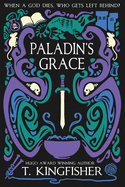
Paladin’s Grace takes place in the same world but does not overlap much, so can easily be read as a stand-alone. The death of the Saint of Steel has left His holy-berserker Paladins abandoned and bereft. Those who didn’t die or succumb to battle madness have made a new but empty life as servants of the Rat God. Their leader takes a small step toward redemption while defending a perfumer named Grace who is mistakenly caught in an assassination attempt against a foreign prince. Again, both perfumer and Paladin make the big step to allow themselves to seek happiness.
Both books are gently funny and bittersweet at the same time. They are both sort-of romances and are surprisingly thrilling, despite their older, world-weary protagonists. It seems that the battle to stand up for yourself or defend someone else from a small wrong, requires its own form of heroism. There is redemption and grace to be found in simple courageous acts.
The Atlas Six by Olivie Blake
A New York Times Bestselling book from 2022 does not really need a review from me. But the sequel just came out, and a customer recommended it to me. They were right. The Atlas Six is a treasure trove of beautiful writing, interesting characters, and odd wisdom.

Six young people, all accomplished medeians (magicians), are recruited by a mysterious man named Atlas Blake, for an unexpected and unusual opportunity. They end up secluded together in the Library of Alexandria, which has attained a sort of sentience and is now located somewhere in England. There, they research whatever philosophy, science and magic the Library will permit them.
The idea of an ancient and vaguely dangerous knowledge is not new, nor is the existence of a hidden magical library. The magical system invented by Olivie Blake, a merging of philosophy and science, is confusing enough that I did not really try to understand it. That said, much of the magical philosophy is actually basic psychology based on common sense and observation, and is extremely well done. The musing on the nature of villainy and heroism that starts on page 299, for example, is almost worth the price of the book.
But it is the characters—the six people chosen by Atlas, Atlas’ assistant, and Atlas himself—that are the core of the book. Every one of them is deeply flawed and holding powerful secrets, which they are hiding from the others, the reader and, sometimes, themselves. The relationships between all eight of them are fully realized and often wrenching. None of them are particularly likable, but they are so brilliantly understood within the story that you come to care for them all. This renders the trap that is closing around the chosen Six particularly poignant and riveting.
The Atlas Six covers the discovery and training of the Library’s newest students. It becomes clear that the trap closing on the students is part of a larger problem. The exact nature of the disaster that might be looming over Atlas and/or the Library remains to be seen in the second book, The Atlas Paradox. Both books are now available in trade paperback.
The Road to Roswell by Connie Willis

Connie Willis is a master storyteller with numerous Hugo and Nebula Awards under her belt. She excels at brilliant, frantic science fiction stories that manage to be closely personal and engaging, while somehow still ending up as world-saving adventures.
Francie is a typical Connie Willis heroine. She is ordinary, smart and well-meaning, with a huge measure of sardonic practicality, just like her author. She arrives at her best friend’s wedding during a festival at the UFO Museum in Roswell, New Mexico. Her goal is to stop her best friend from once again making a bad marriage decision. She ends up being abducted by an alien while wearing a neon-green, glow-in-the-dark bridesmaid’s dress. It’s not her fault. Really. Francie is the only person in the book who is exactly what she seems.
The abduction quickly goes astray, turning into a chaotic and hilarious road trip, as the alien (literally) ropes in more people, each more eclectic and unexpected. Many of them are obviously well-versed in the lore surrounding UFOs and abductions, though Willis of course turns their information completely sideways. The growing group has to evade UFO nuts and tourists and traffic cops and Men in Black and (maybe) other aliens. They are never entirely sure what they are doing. Or exactly why.
In the end, though, on The Road to Roswell, knowing everything about science fictional UFO tropes is not as nearly as useful as kindness and a full working knowledge of 1950s cowboy movies. They’re a great way to learn to communicate, you see, and the alien has a thing for Monument Valley . . . It’s best to just run with it. The book is tons of fun—Connie Willis at her best.
Shanghai Immortal by A.Y. Chao
I chose this book because it has a really cool cover. And also because I’m currently having a blast with fantasy based on Chinese mythology. I kept reading it because the world-building is wonderfully inventive and exuberantly Chinese. And the main character, who tells her story in first-person present tense, is a fabulous narrator.
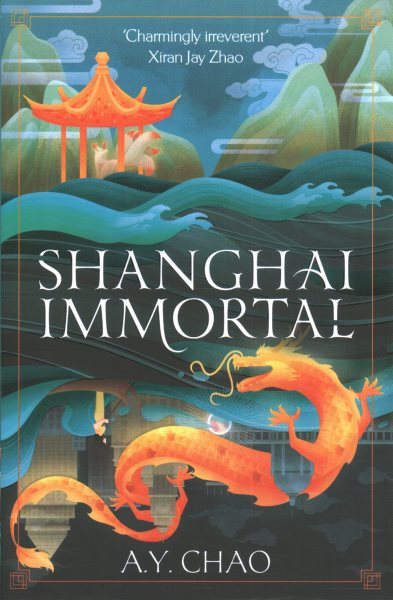
Shanghai Immortal takes place in “jazz age Shanghai” and its underworld reflection, immortal Shanghai, which is basically a version of Chinese Hell. Immortal Shanghai is where the dead work through their attachments before drinking Meng Po’s soup of forgetfulness and passing over the Naihe Bridge to reincarnation. It is ruled by the yaojing immortals—gods, demons, hopping vampires, hulijing (nine-tailed foxes)—and one Big Wang, the King of Hell. Both Shanghais are loud, irreverent, and perilous.
Our heroine narrator, Lady Jing of Mount Kunlun (called Little Jing), is equally loud and irreverent, though possibly not as perilous as Shanghai. Possibly. She is half vampire and half hulijing, and at not quite one hundred years old, she is still an obnoxious teenager. She has severe anger management issues, particularly when dealing with her boss, Big Wang, or her hulijing grandmother, the Venerable Matriarch of the Hulijing Court. She also needs both blood and the yang energy from mortals to survive.
So when Big Wang sends Little Jing to the edge of Hell to meet a living mortal, a rather handsome banker named Tony Lee, there is bound to be trouble. And there is. On top of his danger from Lady Jing’s appetites, Tony Lee is key in a plot to open the Bank of Hell, a modernization which the Hulijing Court vehemently opposes. In the endless disputes in Hell, no one, whether yaojing or mortal, is safe. Plus, Little Jing kinda likes him. Maybe a lot.
The Sentence by Louise Erdrich
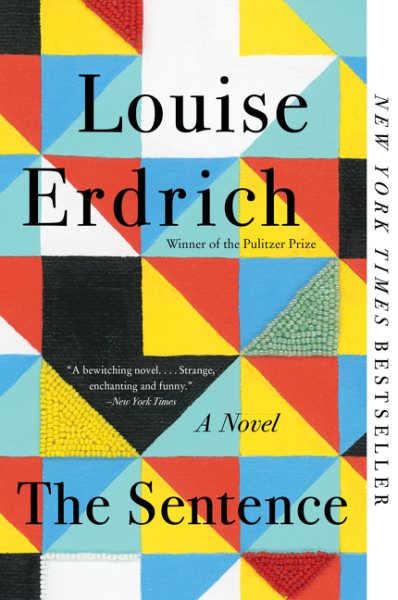
I am not usually a fan of magical realism. I prefer magic that operates under an ordered system invented by the author, and is undeniably real in the pages of a book. The dreamy, this-may-not-really-be-happening attitude behind magical realism often seems to me contrived or unnecessary. But The Sentence describes events that I lived through here in Minneapolis—the beginning of the pandemic and murder of George Floyd—in that same dreamy, surreal style. It actually felt just like that.
The book is a first-person narrative by a woman named Tookie, a Native American who has not always made, shall we say, the best life choices. But Tookie learned, in prison, “to read with a force that resembled insanity,” which allowed her to get most of her shit together. In 2020, she is working at Birchbark Books in Minneapolis. It’s a real place. Louise Erdrich owns Birchbark Books, and oddly appears as a minor character in her own story.
The bookstore, or more specifically Tookie herself, is being haunted by the ghost of an elderly and irritating customer. Narrated in the same surreal tones, the events of 2020 Minneapolis become similarly haunted and unreal. I remember being in those liminal times, both more and less effected than Tookie and her friends. DreamHaven Books and Uncle Hugos (both mentioned in The Sentence) were much closer to danger than Birchbark Books, but we do not share the heritage of oppression. The book is a reminder of the unexpectedness, uncertainty and, yes, magic of that awakening year.
Winter’s Gifts by Ben Aaronovitch
A new book in Ben Aaronovitch’s Rivers of London series has just arrived from Subterranean Press. And the story takes place in between Bayfield and the Red Cliffs Reservation, in Wisconsin!
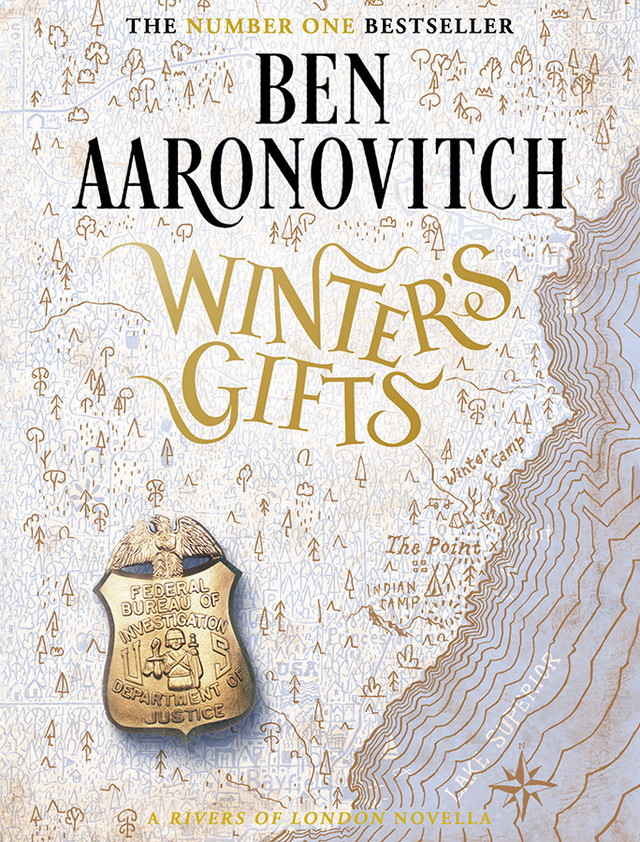
The bad news is that Peter Grant, constable and magician—sorry, practitioner—for the London Metropolitan Police, is only peripherally involved. The good news is that the FBI has its own department for investigating cases with “Unusual Characteristics,” and no prior knowledge of London’s supernatural troubles is required for the new reader.
FBI Agent Kimberley Reynolds has appeared in some previous Rivers of London books. She is, perhaps, not so well-trained in magic, but she’s as snarky as Peter Grant and possibly smarter. She grew up, we learn, in a small Bible Belt town. She doesn’t approve of cursing because it’s “unnecessary,” but she’s open-minded and fair. I fell in love with her when she tells us that her Mama “is not a fan of the federal government, although she makes an exception for the military, the post office and, more recently, Medicare,” which I think sums up the American Wild MidWest nicely.
Kimberley has never been to Wisconsin before, particularly not in a harsh winter which is being made far worse by supernatural storms (or maybe global warming). I’m not sure that Ben Aaronovitch has been in a severe Northern winter either, but his descriptions seemed spot-on to me, though not quite as funny as his usual snide descriptions of London architecture.
The plot is, of course, a mystery involving magic, fast-paced and with plenty of action. The addition of historical speculation about the clash between Native American magic and imperialistic European magicians makes the story more relevant without diminishing the fun. A great read for a snowy Minnesota evening. Have hot chocolate standing by.
Liberty’s Daughter by Naomi Kritzer
Local author Naomi Kritzer’s new book, Liberty’s Daughter, has arrived! She will be doing a reading and signing at DreamHaven on Wednesday, December 6th.
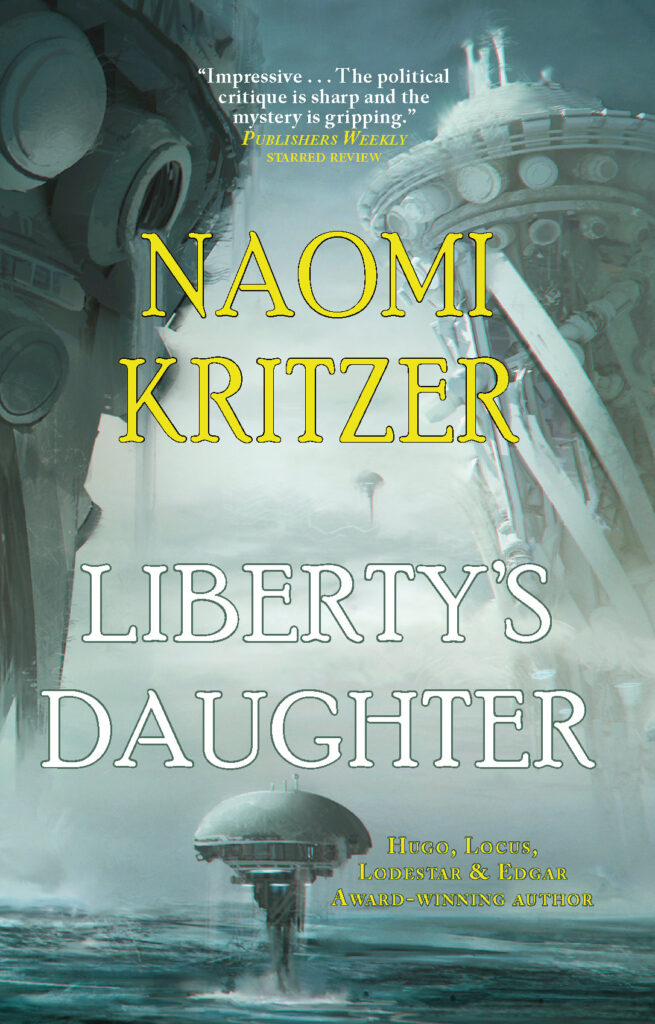
Naomi is a multiple award winner, including Hugo, Lodestar, Edgar and Locus Awards. Her two most recent books, Catfishing on Catnet and Chaos on Catnet, feature young adult protagonists learning very adult things about the world. Like Cory Doctorow’s Little Brother, Naomi’s books give young (and older) readers new perspectives on current events.
Sixteen-year-old Beck Garrison has grown up on Min (short for New Minerva), one of a conglomerate of Pacific ocean platforms that compromise a loosely-organized and largely unrecognized group of nation states. Her childhood has been rather sheltered, since her father is a very important man. She is about to find out that things are not as utopian as they seem, and that her father, perhaps, cannot be trusted.
The politics of Min and the other attached platforms are complex and nuanced, and part of the novel is Beck’s discovery of the ways in which various forms of libertarian government, including total anarchy, might work. However Beck finds out, through her new part-time job, that many parts of her society are not actually working very well for many of the people she meets. And then the real crises hit . . .
Beck is a great character. She is a little bit snarky and a lot smart. Her naivety quickly gives way under the strength of her observations, revealing an unexpected ability to see all the parts of a problem and find ways to fix it. Like many teen protagonists, she sometimes has to overcome adults who are standing in the way. Beck’s journey to find agency, despite the adults trying to take it away, is one of the joys of the novel.
Newsletter
We have a newsletter! Have you seen it?
We aren’t doing a catalog any longer but we are now sending out a newsletter via e-mail every two weeks. New titles, events, used and collectible titles, sales, whatever is going on, we’ll let you know. The next one goes out on October 27th. If you’re interested, just pop your e-mail in the spot here and we’ll get you on the list.
City of Last Chances by Adrian Tchaikovsky
I’ve been hearing good things about British writer Adrian Tchaikovsky (Czajkowski) for some time. He is the author of several acclaimed epic series, including the ten-book Shadows of the Apt and three-book Children of Time. City of Last Chances is his most recent book and, so far, a stand-alone fantasy novel. I suspect there will be sequels.
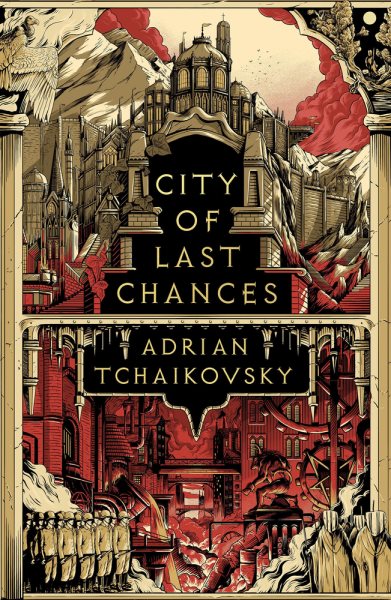
The ancient city of Ilmar stands at a dangerous crossroads between magical worlds, and has many names, mostly uncomplimentary. The most recent in its long history of misfortunes is the replacement of a corrupt monarchy by an equally corrupt invader, a bureaucracy intent on forcibly Perfecting the citizenry. Neither the citizens of Ilmar nor its more arcane inhabitants appreciate this effort. Now various factions harboring a hodgepodge of more-or-less effective and misunderstood magics, are on the brink of rebellion.
The story is a politically and magically complex tale, told with seamless transitions between multiple points of view. The characters are all deeply flawed and occasionally unlikable, but they are fully human (mostly) and understandable. No one is particularly good, but no one is particularly evil either. They’re all just trying to get by in a city where perilous magic has been ignored for centuries and lots of wrongs are too entrenched to be changed.
The result feels like a cross between Les Miserables and Game of Thrones, with communism instead of an aristocracy, and written by Dostoevsky. The story is realistic and a bit violent, leaning toward horror but never quite getting there. Every description is laid like a building block in an intricate series of events. It is evocative, fast-paced, and surprisingly wise.
Cancellation
The previously announced reading with Abra Staffin-Wiebe on October 4th has been cancelled due to illness.
The Dark Lord’s Daughter by Patricia C. Wrede
Patricia C. Wrede, the master of fantasy who brought us the Enchanted Forest Chronicles (Dealing with Dragons, etc), has a new groundbreaking young adult fantasy. Pat will be reading and signing at DreamHaven Books at 6:30 on October 18, 2023.
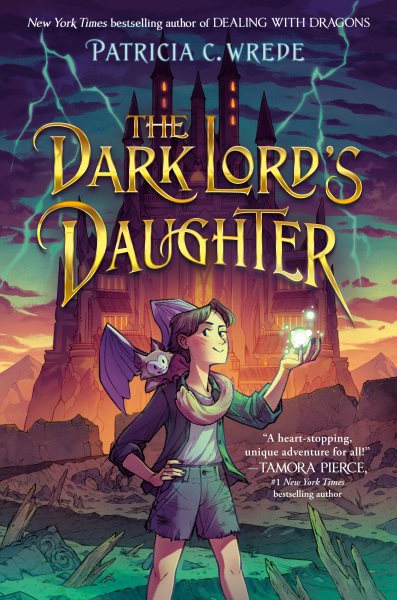
The young hero of The Dark Lord’s Daughter, Kayla, is transported to a fantasy world (from the Minnesota State Fair!), by a man who isn’t after all role-playing as a knight. There, she learns that she is really Xavrielina, the daughter and heir of the now-deceased Dark Lord of Zaradwin Castle. Like many fourteen-year-old heroes, Kayla is smart and practical, and not especially thrilled at the idea of becoming a possibly evil Dark Lady (or of being named Xavrielina). She mostly wants to go home.
But, of course, the only way out of most adventures is to get through them. Kayla has a rare advantage over most adolescent heroes—her adoptive mother and obnoxious younger half-brother are both kidnapped with her. Even rarer, Kayla’s mother is also smart and practical; well-prepared and surprisingly supportive. Her brother is a smart-mouth, but can occasionally be useful too.
Helpful quotes (from “The Dark Traditions”) at the beginning of each chapter inform the reader that actual evil is expected from this world’s Dark Lords and Ladies. Happily, the instructions about terrorizing the locals and eliminating the competition are so over-the-top that Kayla cannot possibly take them seriously. The relief of the locals and competition is delightful to watch.
In 1990, when Dealing with Dragons was released, it was unusual for a princess to go around rescuing princes and dragons. Today it is unusual to find a fantasy where family is strong and encouraging without overshadowing the young hero’s story. This is a fun read for young adults of all ages or read-aloud for younger kids.
Legends and Lattes by Travis Baldree
Travis Baldree is a voice actor who narrates audiobooks. His author biography states that, “Apparently, he has now written one book.” Indeed he has. It’s a New York Times bestseller and has been nominated for a Hugo Award.
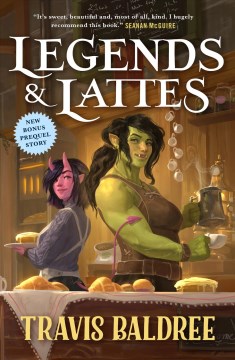
Legends and Lattes is the name of a coffee shop opened by a retired orc adventurer named Viv. No one in the city of Thune has ever heard of coffee, so it’s a bit of an uphill battle. Viv and her enormous greatsword have been through plenty of battles, but this one is different. The sword now hangs from the wall, decorated in flowers, and is of no use whatsoever for solving Viv’s current problems.
To succeed in the barista business, Viv collects a diverse group with multiple, previously-unrecognized talents. All of them are delightfully quirky and obviously destined to become found family. Most of their difficulties are easily solved with an application of genius—like inventing the croissant or designing an advertising system—but when the Thune equivalent of the Mafia arrive, well . . . maybe things are not quite so simple.
There is an emerging sub-genre of F/SF books featuring diverse characters, unexpected community, and ordinary problems solved by kindness. Readers of Becky Chambers and TJ Klune can add Travis Baldree to their list of authors writing such comfortable books.
Featuring Diana Nock
And we’ve finally gotten confirmation from our fourth guest on August 26th for our “Afternoon with Independent Graphic Novel Creators.” Come visit Diana, along with Daisy Finch McGuire, Blue Delliquanti, and Nathan Lueth. We’re not sure where we’ll fit them all, but there will be an opportunity to meet them, view their work, and possibly watch them draw.
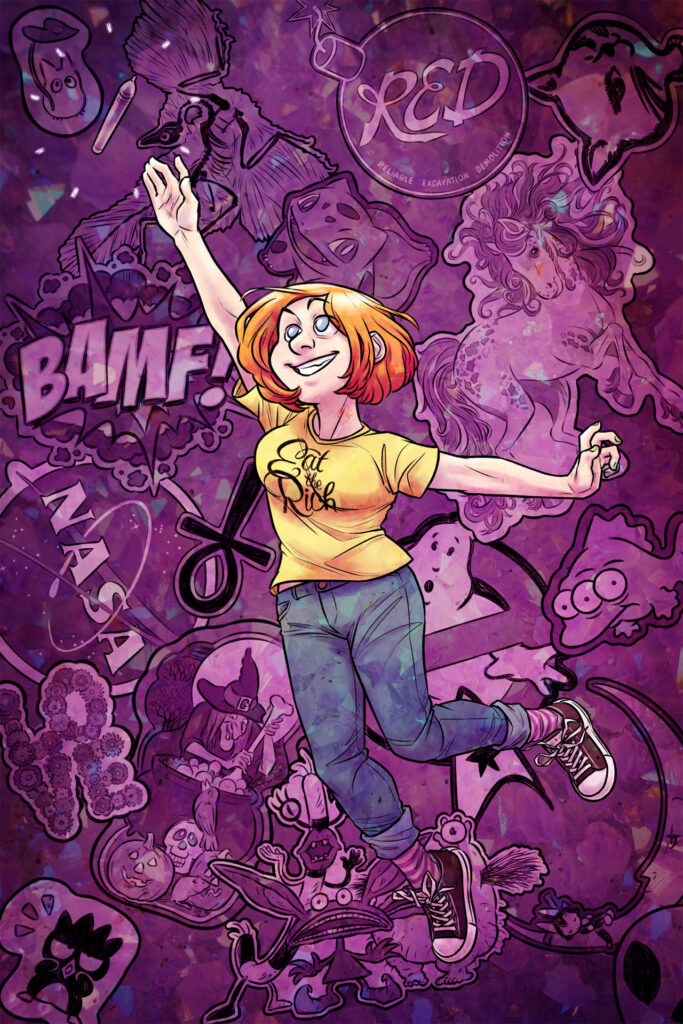
Diana Nock is a cartoonist, writer, illustrator, and incorrigible dilettante best known for her work on Poorcraft and her webcomic The Intrepid Girlbot, the latter of which will be relaunched very soon at intrepidgirlbot.com! For a good time, ask her about her vision of the Apocalypse.
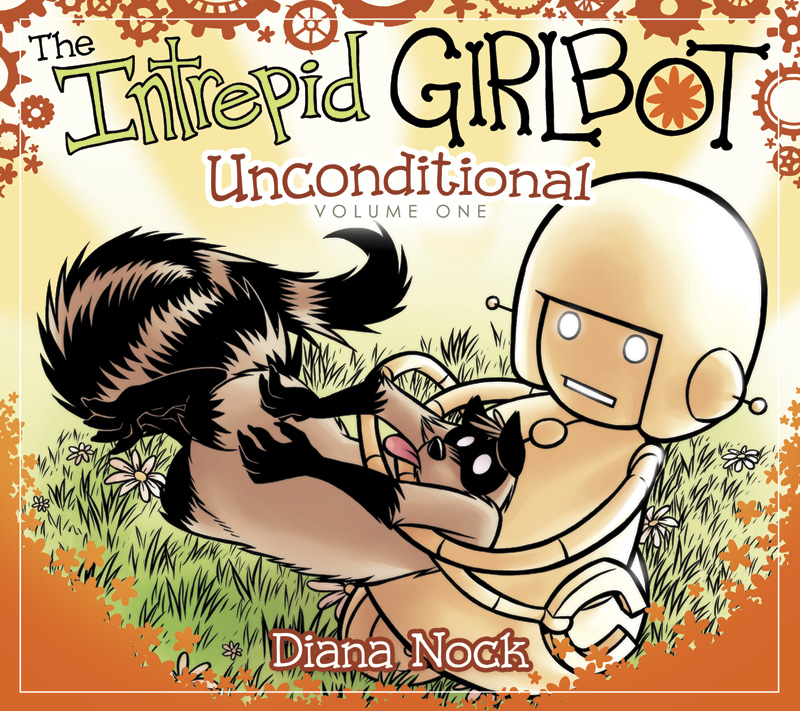
Featuring Nathan Lueth
The third person who will be displaying his work and meeting his fans at DreamHaven on Saturday, August 26, is Nathan Lueth. He seems to be the only creator so far who is not a cartoon.

Nathan Lueth came into existence with a pencil in his hand, a feat which continues to confound obstetricians to this day. Now an 18 year veteran freelance illustrator, storyboard artist, and graphic novelist, Nathan has worked with clients and publishers of all sizes such as Target, General Mills, The University of Pennsylvania, Inverse Press, Wannabe Press, Writers of the Round Table, and more. He is the co-creator of the Victorian-flavored epic fantasy graphic novel series, Impure Blood, the editor/publisher of the modern fantasy comic anthology Concrete Arcanum. His latest series, The Canon of Vangel, launched in May 2022 and can be read online at www.canonofvangel.com.
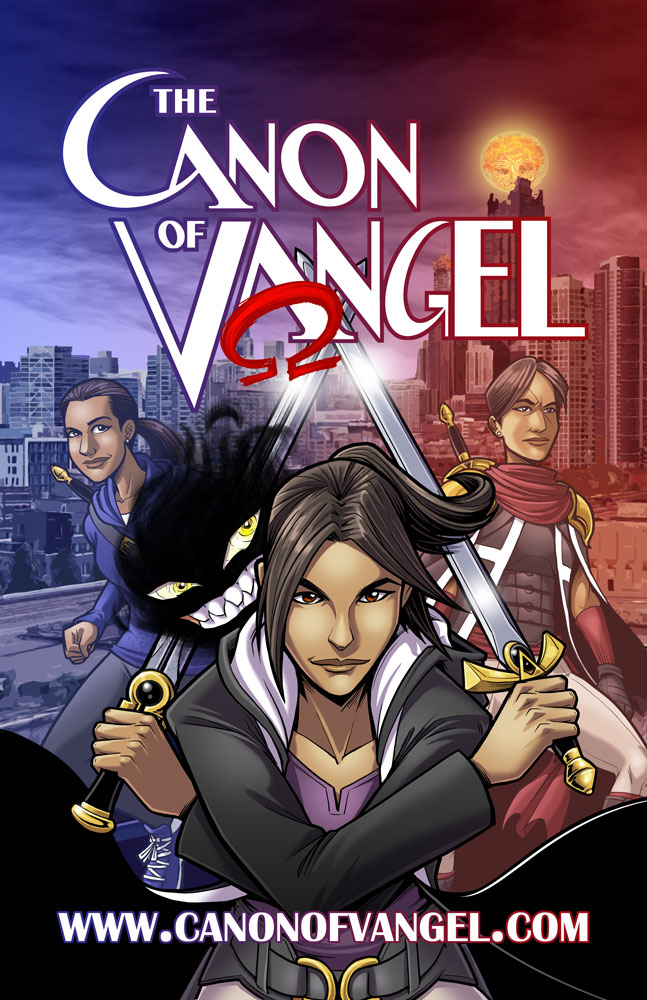
Featuring Daisy Finch McGuire
This is the second creator who will be at DreamHaven on Saturday, August 26, for “An Afternoon With Independent Graphic Novel Creators.” We have four guests scheduled to display their work and meet their fans from 2 to 4 PM.

Daisy Finch McGuire is the webcartoonist who self-published the historical fantasy situation comedy comic, Gastrophobia. She also illustrated Rhiannon Rasmussen-Silverstein’s Let’s Print a Comic and worked freelance for Nickelodeon Magazine, SpongeBob Comics, Paradox Space, and various anthologies. Her current project is a queer reimagining of The Marvelous Land of Oz called Yellow Brick Ramble, which is available to read at yellowbrickramble.com
